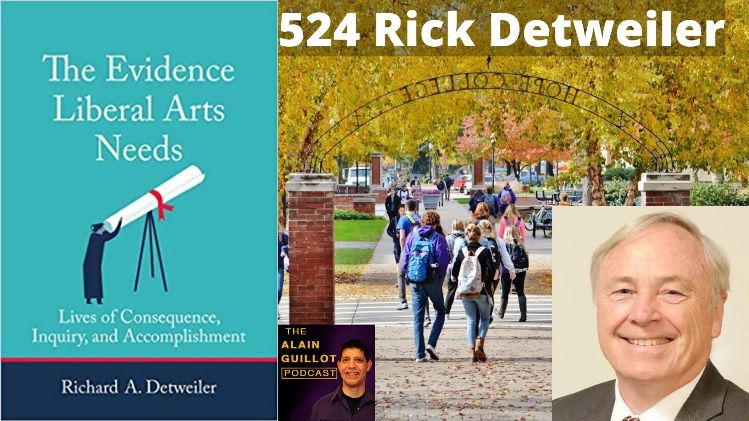About Rick Detweiler

Dr. Richard A. Detweiler (Rick), the founder and managing director of HigherEdImpact, a non-profit network providing research-based knowledge to assist colleges and universities employ impactful educational practices. He is a social psychologist
specializing in intercultural relations, and earned his MA and PhD from Princeton University.
With years of experience as a college president, professor, and consultant, he also holds an appointment as foundation fellow at Oxford’s Harris Manchester College and is President Emeritus of New York’s Hartwick College and of the Great Lakes Colleges Association. Previously he was a distinguished fellow at the Council on Library and Information Resources in Washington, DC, and professor of psychology at two different liberal arts universities.
He is the founder of the Global Liberal Arts Alliance (a coalition of 30 universities from 16 countries that works to strengthen learning in the tradition of the liberal arts and sciences) and recently completed a nearly 14 year presidency of the Great Lakes Colleges Association (a consortium of selective liberal arts colleges and universities). Professionally he has been an active researcher, consultant, and author in higher education, technology initiatives in higher education, institutional planning and research, intercultural relations, international education, and psychology.
He has published dozens of articles related to higher education, psychology, and intercultural relations, and speaks frequently on issues related to the future of higher education, the role of technology in education, and the values of the liberal arts and sciences. He was a founding dean of the Frye Leadership Institute, the recipient of a Carnegie Mellon University/AMS Award for leadership in the innovative use of computer and communications technology, and has served as a board member of a number of higher education organizations.
His book reporting on the character, method, and impact of liberal arts education, The Evidence Liberal Arts Needs: Lives of Consequence, Inquiry, and Accomplishment was published by The MIT Press in 2021
Where to find Rick Detweiler
The Evidence Liberal Arts Needs: Lives of Consequence, Inquiry, and Accomplishment
Empirical evidence for the value of a liberal arts education: how and why it has a lasting impact on success, leadership, altruism, learning, and fulfillment.

In ongoing debates over the value of a college education, the role of the liberal arts in higher education has been blamed by some for making college expensive, impractical, and even worthless. Defenders argue that liberal arts education makes society innovative, creative, and civic-minded. But these qualities are hard to quantify, and many critics of higher education call for courses of study to be strictly job-specific.
In this groundbreaking book, Richard Detweiler, drawing on interviews with more than 1,000 college graduates aged 25 to 65, offers empirical evidence for the value of a liberal arts education. Richard Detweiler finds that a liberal arts education has a lasting impact on success, leadership, altruism, learning, and fulfillment over a lifetime.
Unlike other defenders of a liberal arts education, Richard Detweiler doesn’t rely on philosophical arguments or anecdotes but on data. He developed a series of interview questions related to the content attributes of liberal arts (for example, course assignments and majors), the context attributes (out-of-class interaction with faculty and students, teaching methods, campus life), and the purpose attributes (adult life outcomes). Interview responses show that although both the content of study and the educational context are associated with significant life outcomes, the content of study has less relationship to positive adult life outcomes than the educational context. The implications of this research, Detweiler points out, range from the advantages of broadening areas of study to factors that could influence students’ decisions to attend certain colleges.
